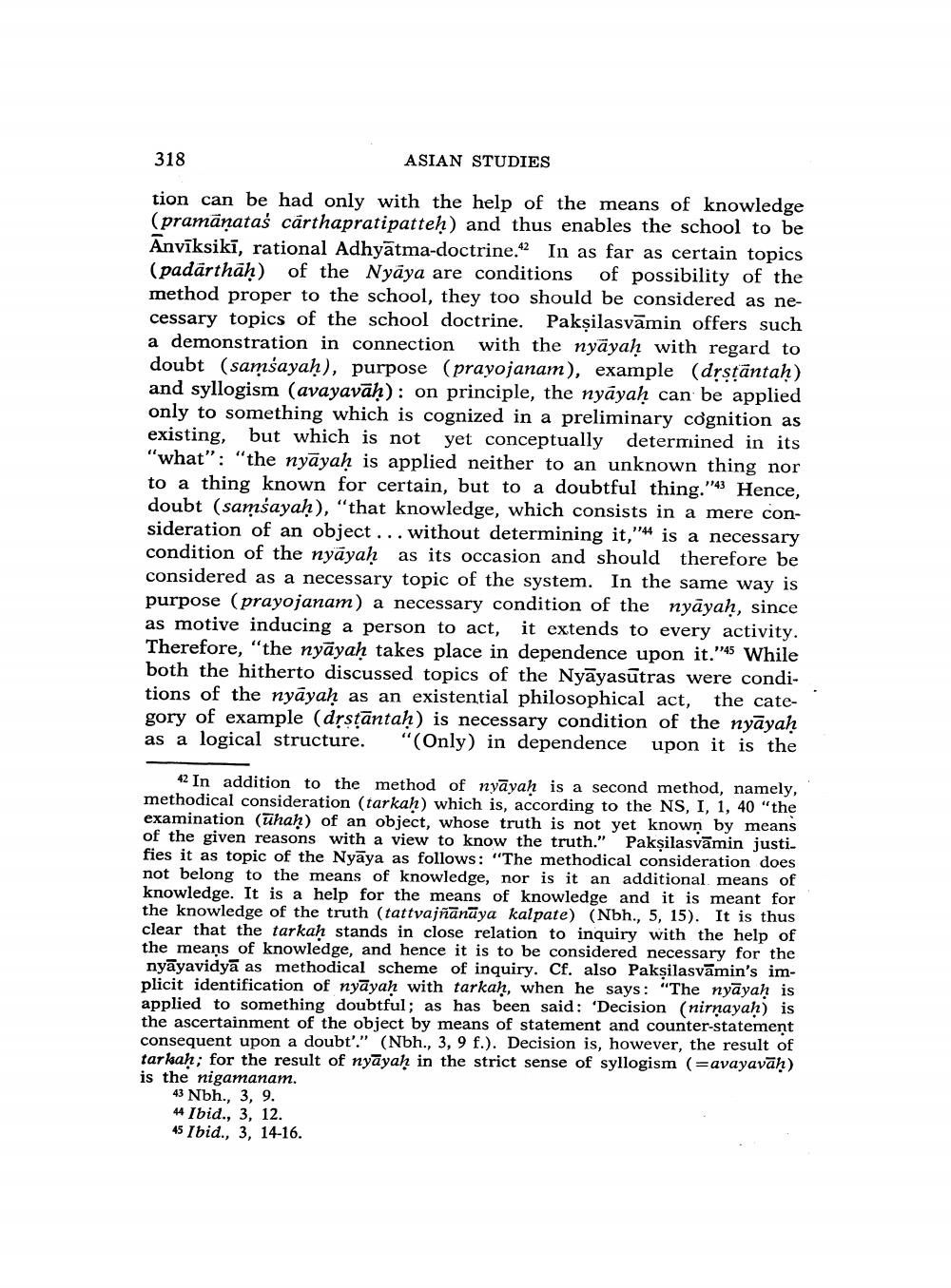________________
318
ASIAN STUDIES
tion can be had only with the help of the means of knowledge (pramānataś carthapratipatteḥ) and thus enables the school to be Anvīksikī, rational Adhyātma-doctrine.42 In as far as certain topics (padārthāh) of the Nyāya are conditions of possibility of the method proper to the school, they too should be considered as necessary topics of the school doctrine. Paksilasvāmin offers such a demonstration in connection with the nyāyaḥ with regard to doubt (samsayah), purpose (prayojanam), example (drstāntah) and syllogism (avayavāḥ): on principle, the nyāyaḥ can be applied only to something which is cognized in a preliminary cognition as existing, but which is not yet conceptually determined in its "what" : "the nyāyaḥ is applied neither to an unknown thing nor to a thing known for certain, but to a doubtful thing."43 Hence, doubt (samsayaḥ), "that knowledge, which consists in a mere consideration of an object ... without determining it,"44 is a necessary condition of the nyāyaḥ as its occasion and should therefore be considered as a necessary topic of the system. In the same way is purpose (prayojanam) a necessary condition of the nyāyaḥ, since as motive inducing a person to act, it extends to every activity. Therefore, "the nyāyah takes place in dependence upon it."'45 While both the hitherto discussed topics of the Nyāyasūtras were conditions of the nyāyaḥ as an existential philosophical act, the category of example (drstāntah) is necessary condition of the nyāyah as a logical structure. "(Only) in dependence upon it is the
42 In addition to the method of nyāyah is a second method, namely, methodical consideration (tarkah) which is, according to the NS, I, 1, 40 "the examination (ühah) of an object, whose truth is not yet known by means of the given reasons with a view to know the truth." Paksilasvāmin justi. fies it as topic of the Nyāya as follows: "The methodical consideration does not belong to the means of knowledge, nor is it an additional means of knowledge. It is a help for the means of knowledge and it is meant for the knowledge of the truth (tattvajñānāya kalpate) (Nbh., 5, 15). It is thus clear that the tarkah stands in close relation to inquiry with the help of the means of knowledge, and hence it is to be considered necessary for the nyāyavidyā as methodical scheme of inquiry. Cf. also Paksilasvamin's implicit identification of nyāyaḥ with tarkaḥ, when he says: "The nyāyaḥ is applied to something doubtful; as has been said: 'Decision (nirnayah) is the ascertainment of the object by means of statement and counter-statement consequent upon a doubt'." (Nbh., 3, 9 f.). Decision is, however, the result of tarkaḥ; for the result of nyāyaḥ in the strict sense of syllogism (=avayavāḥ) is the nigamanam.
43 Nbh., 3, 9. 44 Ibid., 3, 12. 45 Ibid., 3, 14-16.




